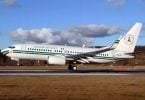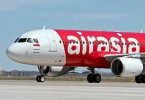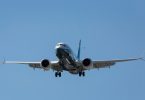More people are flying overseas this year as the global economy rebounds from recession, lifting revenue and profit among the country’s largest network carriers, an airline industry group says.
On Monday, the International Air Transport Association said premium ticket sales, which include business- and first-class travel, increased 7.6% in the first three months of the year from the same quarter last year. Economy-class volumes rose 7.4%.
Corporate demand, particularly for travel to the Far East, helped drive the growth.
“Of course both travel classes have been rebounding from the low levels of 2009, so there has been the usual post-recession surge in pent-up travel demand,” IATA said in a statement.
Premium traffic volumes fell 16% in 2009.
Although premium passengers account for just 10% of international fliers, they generate 30% of international revenue, the trade group said.
Despite the positive data, airline stocks declined with the broader market to start the week as investors considered the effects of European government-budget cuts on the region’s economic recovery. The Dow Jones Industrial Average and other equity benchmarks lost more than 1% in midday trading. Read Market Snapshot.
At last check, the NYSE Arca Airline Index declined more than 2% to 35.91 points with shares of all of its 13 components trading lower. In the last 52 weeks, the sector benchmark has moved in a range of 40.89 to 15.92 points.
Shares of Continental Airlines retreated nearly 2% to $20.26, US Airways Group fell 1.8% to $6.96 and AMR Corp., the parent of American Airlines, declined about 1% to $7.09.
Hit the hardest were foreign carriers. U.S.-listed shares of Ryanair Holdings dropped 6% to $23.23, while Tam SA sank nearly 6% to $14.73 and Gol Linhas fell 2.4% to $12.35.
The benchmark price for oil, meanwhile, fell to a five-month low of $69.82 a barrel, thanks in part to a stronger dollar.
Leisure travel languishes
For March, the number of premium passengers flying internationally rose 10.8% from a year ago, according to IATA, with economy numbers up 8.8%.
That’s the fourth consecutive month of growth — something, according to analyst Peter Arment of Broadpoint.AmTech, that hasn’t happened since May 2008.
“The consecutive improvements in premium traffic look as though the recession in premium travel has been cyclical rather than a permanent fall, which is very positive for the industry given premium’s contribution to overall revenue,” Arment said.
Corporate fliers have returned more quickly than at first anticipated, though it’s still at a relatively sluggish pace. Nonetheless, it’s driving up ticket prices rapidly as airlines remain cautious over adding new capacity, leaving fewer seats to purchase.
In March, IATA slashed its projected 2010 loss for the industry to $2.8 billion, just half the prior expected loss of $5.6 billion.
Compared to the fourth quarter and adjusted for normal seasonality, IATA said international premium volumes grew 25% in the first quarter, with economy-seat sales up 10%.
The impact of flight disruptions due to the erupting volcano in Iceland is estimated to have lowered overall numbers by 4%.
Growth in both seat classes is being driven by business travel as world trade rose sharply, but leisure travel has languished and isn’t likely to recover quickly, the group said.
“Consumer confidence has not recovered in the same way as business confidence,” the IATA said. “Higher levels of unemployment and consumer debt have led to little improvement since the mid-2009 rebound.”






















